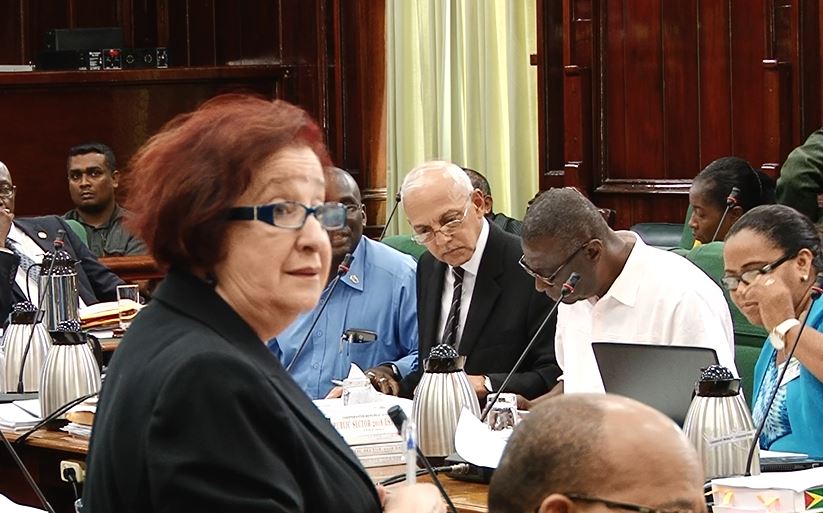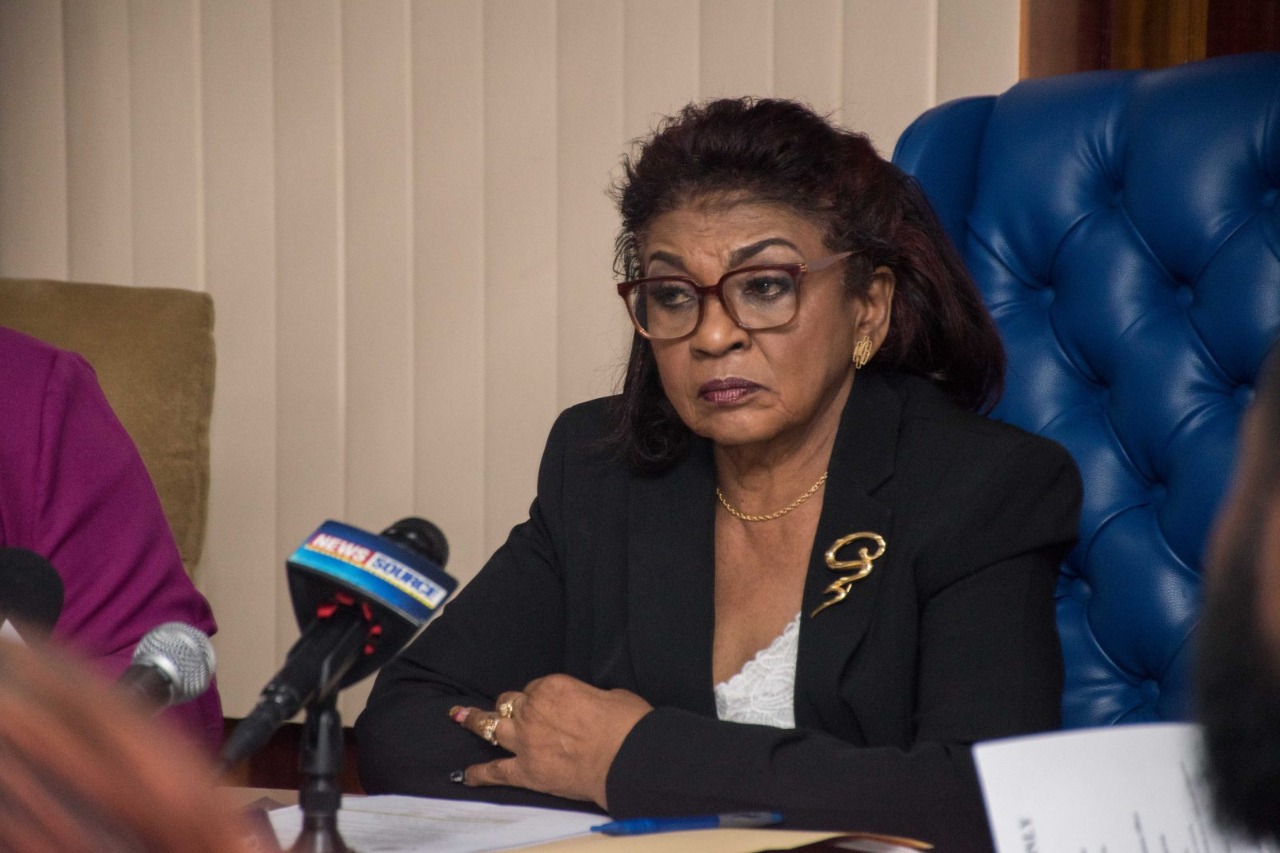Speaker of the National Assembly Dr Barton Scotland on Friday referred a decision on the Opposition’s concerns regarding the presence of the Prime Minister in the National Assembly whenever he performs the functions of the President to the Parliamentary Standing Committee on Constitutional Reform.
The Opposition had claimed that the Prime Minister was essentially squatting in the House if he attends the sessions when he performs the duties of President, saying the constitution is clear that his seat becomes vacant in such a situation and should be assumed by another Minister.
Today, the Speaker said he did not believe he should be the one to make a decision on the matter, leaving the Opposition furious.
“As Speaker of the National Assembly vested with powers to rule on many matters which come before the House, I hold that such powers should be exercised with circumspection and inappropriate instances.
“My reading on this matter…does not incline me to the conviction that unilateral action in this matter by the Speaker or any other Third Party Instrumentality will lead to a final and permanent resolution,” the Speaker stated.
As such, he suggested that the matter should be resolved in the Parliamentary Standing Committee for Constitutional reform, noting that the committee can enlist the aid of other persons or appropriate expertise, whether or not such experts or other persons are members of the National Assembly.

Opposition Chief Whip Gail Teixeira, who had written the Speaker on the issue, compared the Speaker’s actions to that of the Biblical Roman governor Pontius Pilate who sought to abdicate responsibility for Jesus’ death by letting the crowd decide.
“He is behaving like Pontius Pilate, just washing his hands and passing Jesus on,” Teixeira told reporters after the Speaker read his response to her in the House.
The Speaker discouraged a resort to the court to settle the matter, but Teixeira said the Opposition would be forced to go that route.
“I don’t think thing we have any other choice…if the Speaker is not prepared to carry out the requirements of the constitution,” she declared.
In her letter to the Speaker, Teixeira had noted that in the 8th, 9th and 10th Parliaments in accordance with Articles 96 (1) and 178 (1) and (4) of the Guyana Constitution when the then Prime Minister Samuel Archibald Hinds was carrying out “the functions of office of the President” who was overseas, he was not allowed to attend a sitting or a committee meeting of the National Assembly.
There are records to this effect in the archives of the Parliament Office.
The Speaker said there appears to be no record which makes clear the reason for the conduct of the then Prime Minister.
He held the view “that the absence of records and the reliance, in its place, on memory does not provide a sufficiently strong basis” on which he should rely for a definite settlement of so grave and weighty a matter.
But Teixeira said the Speaker had all week to do his research; she said a simple check of when Mr Hinds performed the duties of President could be cross-checked with sittings of the National Assembly during those times and the matter could be established.
She had noted that Article 103 (1) of the Constitution provides: “The Prime Minister and every other Vice President shall be a Minister of the Government of Guyana.”
Article 106 (1) reinforces this further by providing that “there shall be a Cabinet for Guyana, which shall consist of the President, the Prime Minister, the Vice Presidents, and such other Ministers as may be appointed to it by the President.”
Article 96 (1) of the Constitution provides: “Whenever the President is absent from Guyana or considers it desirable to do so by reason of illness or any other cause he or she may, by direction in writing authorise any member of Cabinet, being an elected member of the National Assembly, to perform such functions of office of the President as he may specify and the person so authorised shall perform those functions until his authority is revoked by the President or until the functions are resumed by the President.”
Teixeira stated that the Prime Minister is an elected member of the National Assembly and a member of Cabinet. Therefore, he qualifies to have been appointed by the President, to perform the functions of office of President and in fact, has been appointed on many occasions to do so in keeping with this article.
To bolster her point, she then noted that Article 178 (4) of the Constitution then unambiguously reads: “During any period when a Minister is performing the functions of the office of the President under article 96 or 179 or has assumed the office under the provisio to article 95(1), his seat in the National Assembly shall be regarded as vacant ……. At the expiration of the period… the seat shall thereupon be resumed by the Minister”.
“Therefore, while he is performing the functions of the office of President, First Vice President and Prime Minister cannot attend a sitting of the National Assembly nor take part in any committee meeting nor vote at any time,” she declared.













